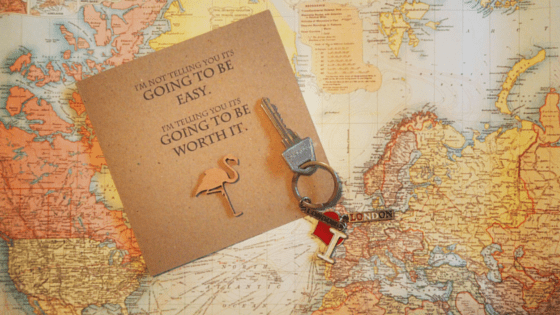Last week I spent the 4th of July outside of the United States for the 8th time in the last 15 years. I went to work as usual and watched my Instagram and Facebook feeds fill with pictures of families decked out in red, white, and blue. I didn’t feel nostalgic or homesick. Mostly, I felt relieved that I wasn’t there. That I didn’t have to participate in a holiday celebrating the birth of a nation I am less and less proud to call home.
Before I go on, I want to say that I am aware of and deeply grateful for the many unearned advantages I have had because I am an American citizen. Even having the opportunity to live and work internationally is due in large part to my American passport and to being a native English speaker. I am deeply grateful for the men and women who came before me, dreaming of a better world and a better future. I am grateful to my family members and friends who have served in the military and to so many other people who have sacrificed in countless ways for me to have the life I have today. But I can be grateful for all that my country has given me and also feel grieved over what she has become.
I grew up in a conservative environment–politically, socially, and religiously. It wasn’t until college that I began to consider other ways of thinking and living. Yet for as long as I can remember, I’ve wanted to be somewhere else in the world. I was born with an unquenchable curiosity about other lands and other people.
Even in my less-examined life, when I believed that the United States upheld the ideals of liberty and justice for all, I also believed there was much to be learned from the rest of the world. At this point, I have lived a significant part of my adult life outside of the US. I have also had the great privilege of traveling extensively. I have long since lost any belief that the United States is the “best” country in the world (whatever that means) or that their way of doing things is necessarily right or better. This goes against a fairly typical American sentiment that assumes that what the United States has is both superior and desirable.
Last June my parents came to visit us in Hong Kong and we took a short trip to Cambodia to see Angkor Wat. At one point I listened to my dad discussing Cambodia’s recent political history with our local guide. The guide expressed his feelings about their recent election – a nod to democracy that was undermined by the fact that there was only one party on the ballot. My dad responded by saying that they were making progress and not to be discouraged because achieving true democracy takes time.
My dad’s basic assumption was that American-style democracy was the ideal that a developing country like Cambodia must be aiming for. I think this a stereotypically American way of looking at the world – that we as a nation have achieved something desirable to other countries, and that they must naturally look to us as an example to follow.
There may have been a time when that was true, but I’m not the only one who has had a shift in perspective. I used to meet people in other parts of the world who spoke of the United States with admiration or at least curiosity. And now? As the world watches the U.S. deal (or not deal) with Covid-19, migrant detention centers, and Black Lives Matter? Now the world looks at us and says, “These are the most selfish people on the planet.”
Some are openly disdainful, but many (especially in places that formerly idealized the US) are baffled and betrayed. This? This is the most powerful country on the planet? This country whose citizens are so divided they spew hatred at each other day in and day out? This country whose BIPOC citizens live in fear for their lives from the very people who are supposed to protect them? This country whose citizens are happy to let the most vulnerable among them die because they are too selfish to be inconvenienced by a scrap of cloth? Why would we want to be like them?
Americans are (often rightfully) perceived as both ignorant and arrogant. Confident in our superiority but with shockingly little understanding of our own history. At least we come by it honestly. We are fed a false narrative of exceptionalism from our preschool days. Part of what makes the United States exceptional, we are told, is that it was built upon the idea that all men are created equal. We conveniently ignore that these very words were penned by white men who bought and sold black men, women, and children as if they were animals. Who did not even consider allowing women to own property, have a voice or a vote. Not to mention that the very land this new nation was built upon was stolen with force and violence from indigenous people.
A country is not great because it insists it is already the best. It is not great because it refuses to acknowledge its flaws. It is not great because it sticks its head in the sand and ignores anything that challenges its fantasy narrative of freedom and equality. A truly great country, like a truly great human, is one that is able to confront difficult truths about itself, to confess the things it has done poorly, and to actively seek a better future. For ALL of its citizens.
I do not think the United States is the best country in the world. Frankly, I do not think the United States needs to be the best country in the world (whatever that even means). But I do think the United States can and should become a good country. One whose institutions treat its citizens with equity. Whose people care about the real needs of others in their community over their own convenience or pride. And one who uses its vast wealth and resources to promote justice worldwide.
I’m not proud to be an American today, but I have hope that one day I will be again.

























